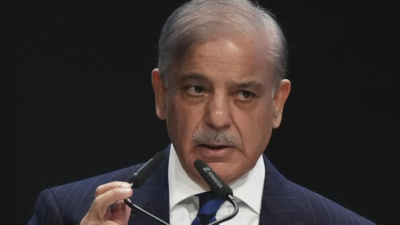ISLAMABAD: Pakistan Prime Minister Shehbaz Sharif criticised the US on Tuesday for imposing sanctions on his country’s ballistic missile programme, saying there was “no justification” for it.
Washington had announced on Dec 12 that it was imposing more restrictions on Pakistan’s long-range ballistic-missile system, including on the state-owned National Development Complex (NDC),which oversees the programme. The sanctions had frozen any US property owned by the targeted entities and barred US nationals from doing business with them.
“Pakistan does not harbour any intention in which its nuclear system is aggressive, it is 100% in Pakistan’s defence. It is just intended for deterrence purposes and nothing else,” Sharif told cabinet members during a meeting.
Noting that his foreign affairs ministry had given a “comprehensive response” to Washington on the matter, Sharif said, “This programme is not mine, nor any political party’s; it belongs to the 240 million people of this country, and it is dear to them. There will be no compromise on this programme, and the entire nation is united on this issue.”
According to a US state department factsheet, the Islamabad-based NDC had sought to obtain components for Pakistan’s long-range ballistic-missile programme and missile-testing equipment. It stated the NDC “is responsible for the development of Pakistan’s ballistic missiles,” including the Shaheen family of missiles.
The US sanctions were preceded by high-level military engagements between China and Pakistan. Last month, a top Chinese military official, General Zhang Youxia, visited Pakistan along with a high-ranking delegation. Youxia, who is vice-chairman of the Central Military Commission (CMC), the overall command of the Chinese military headed by President Xi Jinping, had held one-on-one talks with Pakistan army chief Gen Asim Munir during his visit. Engagements between the two sides, according to the official handout, had focused on “matters of mutual interest, regional security dynamics, measures for regional stability, and enhancing bilateral defence cooperation”.
PM Shehbaz Sharif reject US sanctions on Pak missile programme





